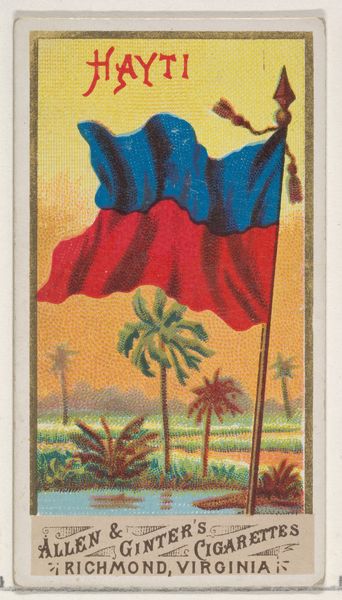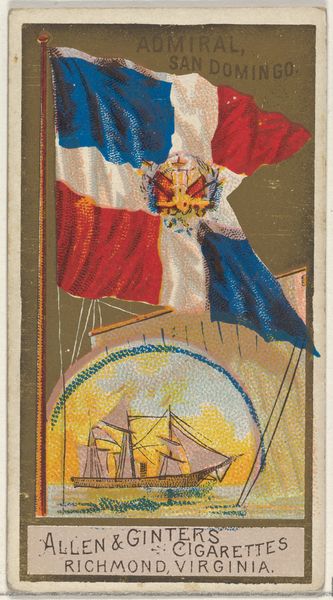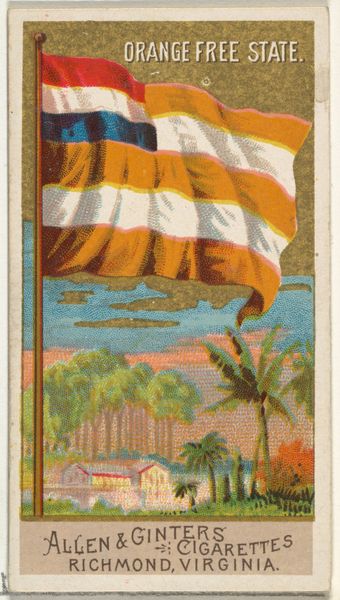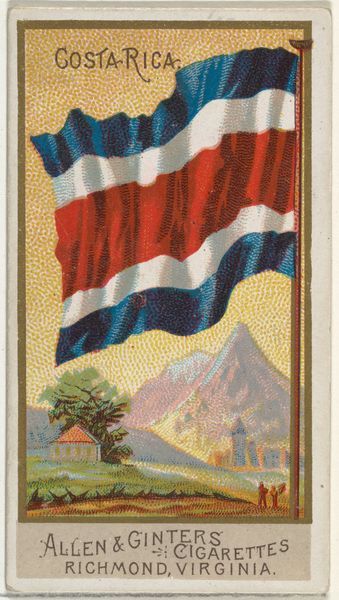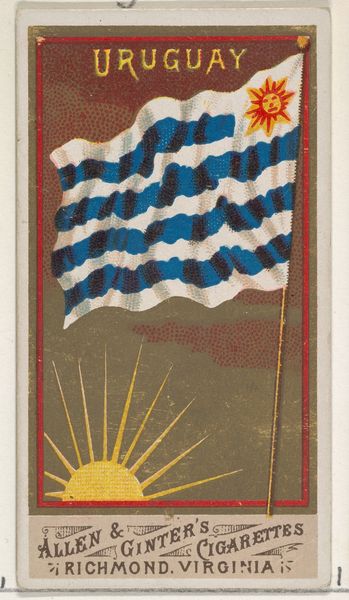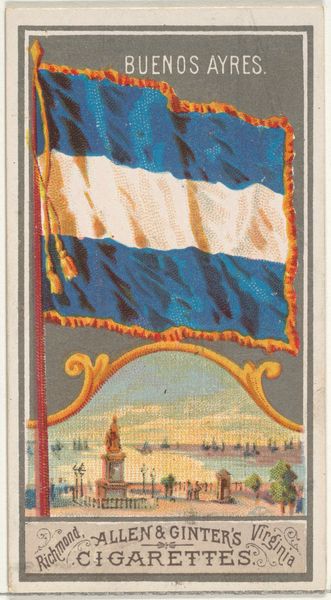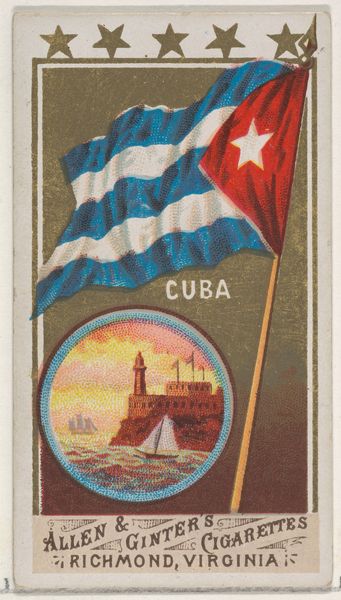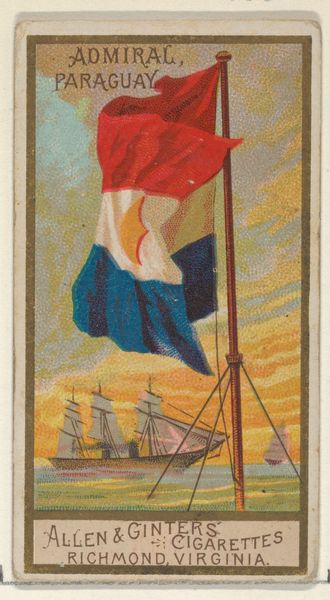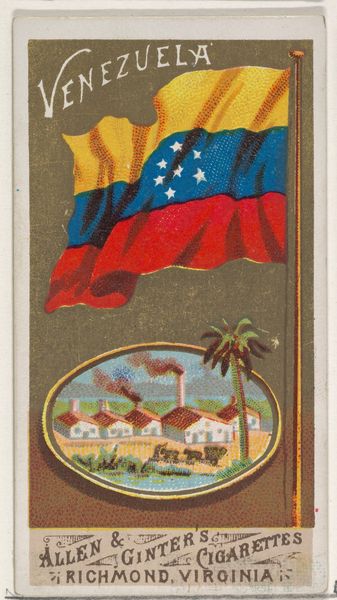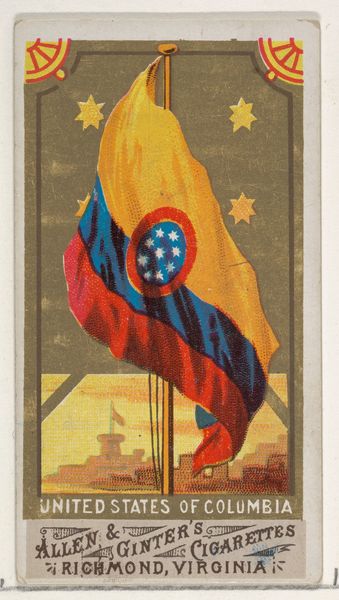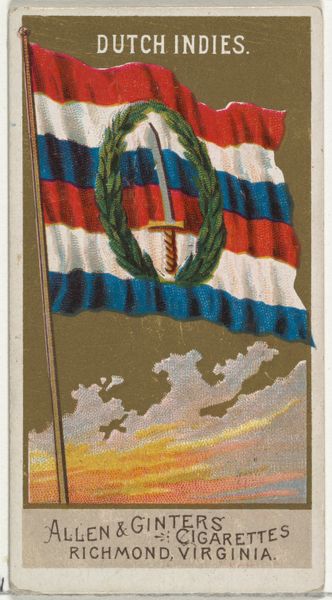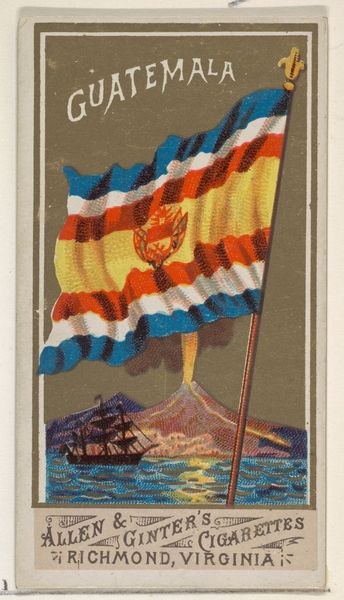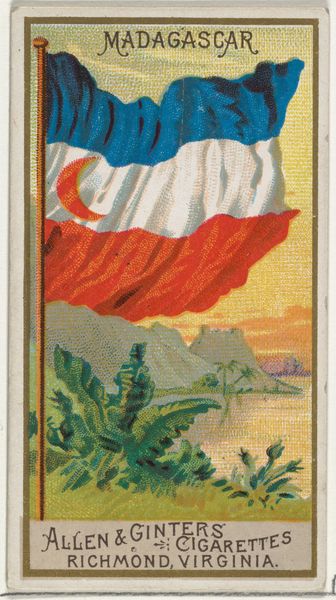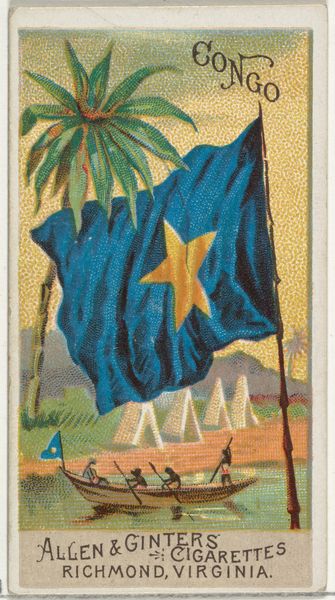
Honduras, from Flags of All Nations, Series 2 (N10) for Allen & Ginter Cigarettes Brands 1890
0:00
0:00
drawing, graphic-art, print, paper
#
drawing
#
graphic-art
# print
#
paper
Dimensions: Sheet: 2 3/4 x 1 1/2 in. (7 x 3.8 cm)
Copyright: Public Domain
Editor: This is "Honduras, from Flags of All Nations, Series 2," created around 1890 by Allen & Ginter as a cigarette card. The rich colors and dense composition caught my eye. What historical context informs this piece? Curator: That's a great observation. We need to think about this image in relation to its historical moment: the late 19th century. Tobacco companies circulated these cards that reflect the expansionist, and frankly, imperialistic impulses of the time. How do you read the imagery, considering the power dynamics inherent in a U.S. company representing another nation's flag? Editor: Well, on the one hand, it could be seen as a gesture of respect by depicting Honduras's flag with care, but it also feels like a flattening of Honduran identity. It's part of a series, reducing complex nations to mere collectible objects, promoting an ideology of trade and domination, not equality. The idyllic landscape feels… imposed. Curator: Exactly. Consider that Honduras, throughout the late 19th century, experienced intense foreign intervention, mainly by U.S. companies involved in the banana trade. Do you think that relationship informs how the card presents Honduras? Editor: It must. Knowing that context, the exoticized landscape almost becomes a backdrop for exploitation, even if that’s not immediately visible. The image, on the surface, seems neutral, but it's a carrier of political ideologies. Curator: Precisely. And what does the mass production of these cards say about access to and circulation of knowledge about different countries? The narrative constructed through images such as this has significant power in forming public perception, which carries long-term consequences. Editor: This has shifted my perspective. I now see how seemingly innocuous commercial art like this played a role in shaping perceptions and reinforcing unequal power structures. Thank you! Curator: And thank you, it's always fruitful to reconsider seemingly benign images when analyzed in their historical, social, and political contexts.
Comments
No comments
Be the first to comment and join the conversation on the ultimate creative platform.
